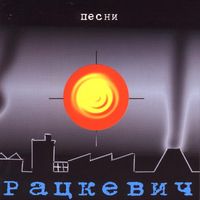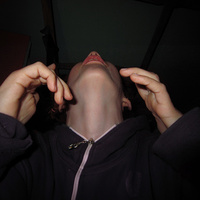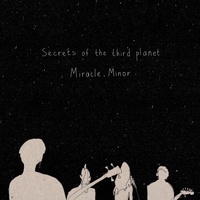The remixed rock-n-roll of Vladimir Ratskevich, released in 1996, isn't rock-n-roll, but our image of it. And it's a rather foolish and funny image. This is how mature musicians probably say good-bye to their heroic past. Then again, the recipe of that last word is pretty simple. You usually take practically every melodic and rhythmic model you know of (rock, country, rhythm and blues), stylish dance rhythms of the mid 90's, quotes from Shostakovich, Dunaevsky and the like. Then all this is made into a sample and turned into complete idiocy (for "humor"). After listening to the record, you can spend some time contemplating everything comical about music. After several years its still funny, but no longer that funny. It seems that projects like these should have some sort of subtext after all- a background defining the depth and perspective, the historical context. All this is lacked in Ratskevich's remixed rock-n-roll. There's irony, post-modernism, fast changing fads, mind games. That's fine for pop music, but it's not enough for a necrologist.
По материалам: www.zvuki.ru
Владимир РАЦКЕВИЧ - свежие публикации:
-
Альбом дня - Rock'Mix'Roll, 18.04.2000Ремикшированный рок-н-ролл Владимира Рацкевича, выпущенный в 1996 году "Филями", - это не рок-н-ролл, а наши представления о нем. Довольно глуповатые и смешные. Так, вероятно, зрелые музыканты с »»
-
Альбом дня - Songs, 26.11.1999The feeling is really strange: as if you've shoved the whole cheeseburger into your mouth. Tasty, yes, but it's a bit too much. And almost impossible to chew. That's probably what they call »»
-
Альбом дня - Песни, 25.11.1999Странное чувство остается после прослушивания - как будто засунул в рот целый чизбургер. Вроде и вкусно, но как-то чрезмерно и не жуется. Видимо, это и есть тот самый "вещий синкретизм". Густота »»
Владимир РАЦКЕВИЧ
Свежие альбомы
Хроника22 апреля
1964 – Президент Национальной ассоциации парикмахеров Великобритании выпустил заявление, в котором гарантировал бесплатную стрижку любому популярному музыканту, занявшему верхние строчки хит-парадов. Как нарочно, в этот год начали свое движение в чарты волосатые рокеры.. »»
1967 – Песня Arnold Layne, повествующая о трансвестите, ворующем женское белье, впервые вывела группу Pink Floyd в английский хит-парад. Почвой для песни послужили реальные события из юности Сида Баррета и Рождера Уотерса: у девушек из колледжа, снимавших комнаты у их матерей, стало пропадать нижнее… »»
1969 – Скромняги The Who представили на концерте в Долтоне рок-оперу "Tommy”. Премьера произошла без особой помпы и даже без официального объявления о новинке. По-настоящему "Tommy" дебютировал двумя неделями позднее в Лондоне »»
Родились
Lou STEIN (1922)
Charles MINGUS (1922)
Glen CAMPBELL (1936)
Jack NITZSCHE (1937)
Don GRUSIN (1941)
Joshua RIFKIN (1944)
Barry GUY (1947)
Larry GROCE (1948)
Peter FRAMPTON (1950)
Paul CARRACK (1951)







